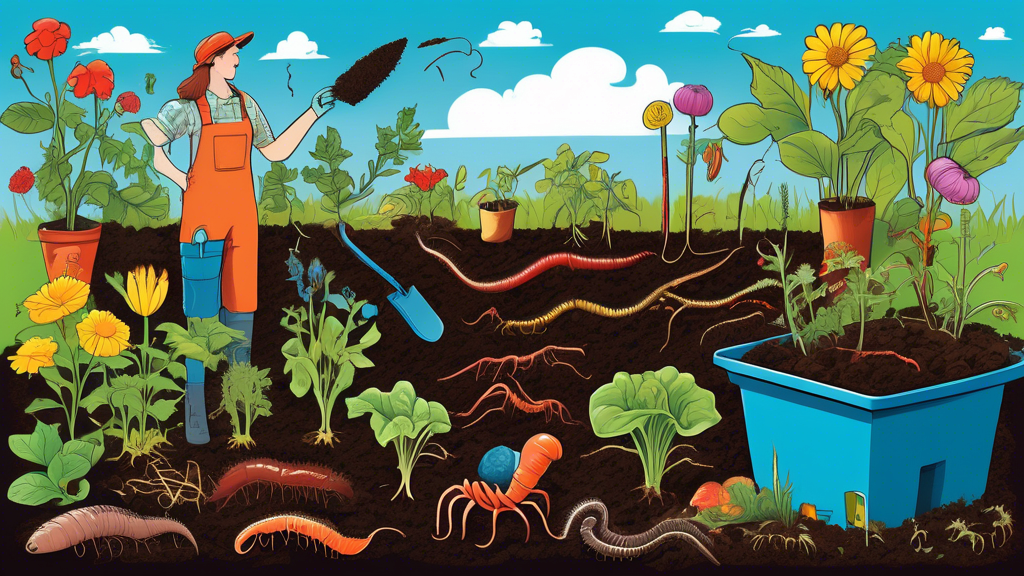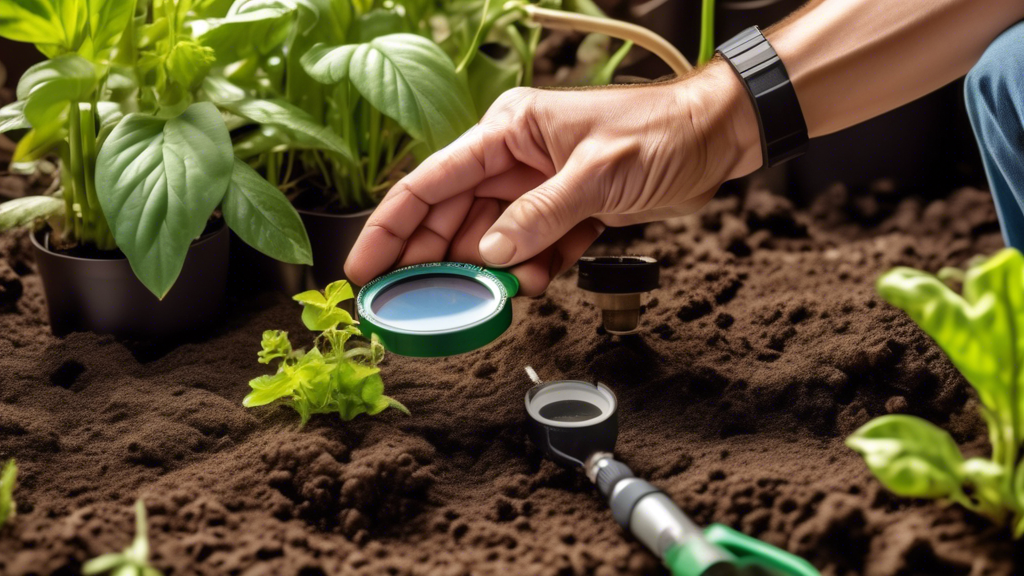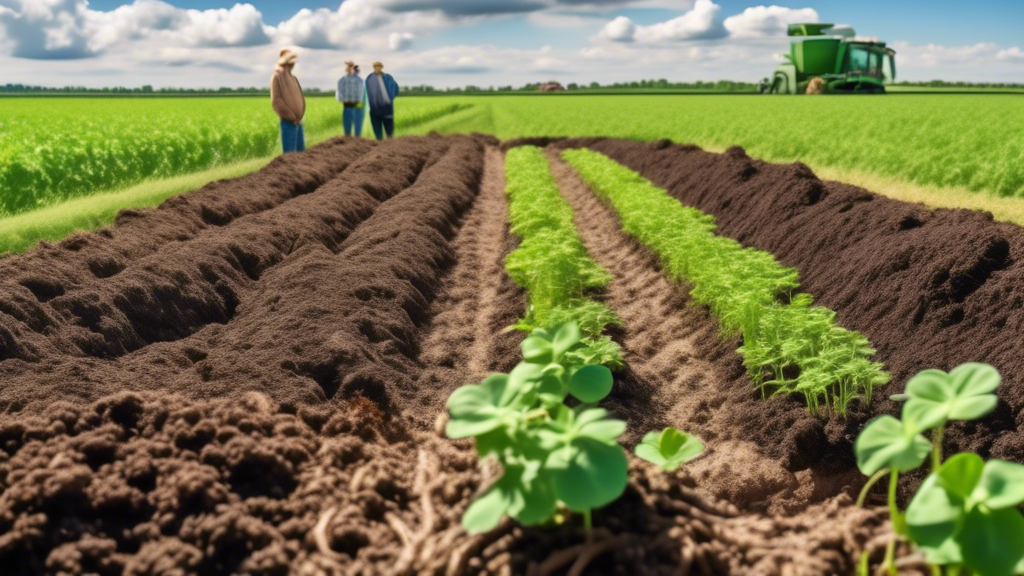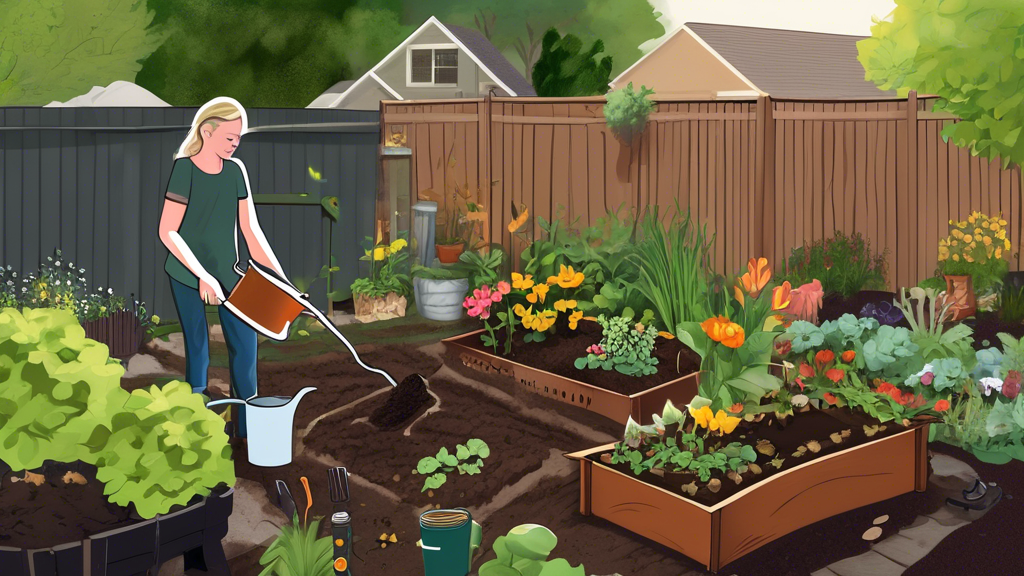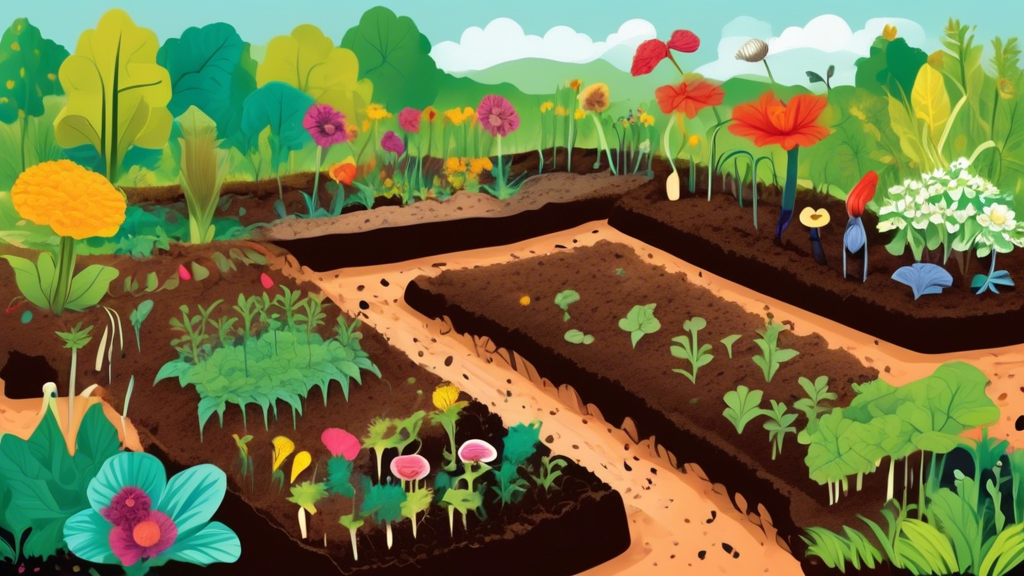
What is Soil Health, Really? (Beyond Just Dirt)
The Living Ecosystem Beneath Your Feet
Healthy soil is far more than just dirt; it’s a vibrant, living ecosystem. This complex community includes billions of bacteria, fungi, protozoa, beneficial nematodes, and earthworms, all interacting in what is known as the Soil Food Web. Think of this web as the digestive and immune system of your garden—it’s the engine that drives nutrient cycling, disease suppression, and ultimately, plant vitality.
The Three Pillars of Healthy Soil
- Physical Structure: This refers to the soil’s texture, how its particles clump together (aggregation), and the spaces between them (porosity). Good structure allows roots to grow deeply and water to infiltrate and drain properly.
- Chemical Balance: This involves the soil’s pH level, the availability of essential nutrients, and its Cation Exchange Capacity (CEC)—a measure of the soil’s ability to hold onto and supply nutrients to plant roots.
- Biological Activity: The diversity and population of microorganisms are the lifeblood of soil. These tiny creatures decompose organic matter, fix nitrogen, and form symbiotic relationships with plant roots.
The Direct Impact: How Healthy Soil Supercharges Your Garden
Robust Root Development and Plant Vigor
Well-structured, loose soil acts like a welcoming home for roots. They can penetrate deeply and spread widely without resistance, accessing a much larger reservoir of water and nutrients, which translates to stronger, more vigorous plants above ground.
Superior Nutrient Uptake and Availability
Plants don’t eat compost or manure directly; soil microbes do. A thriving population of bacteria and fungi breaks down organic matter, converting it into soluble, plant-available nutrients. They are the essential chefs in the garden’s kitchen.
Enhanced Water Management and Drought Resistance
Soil rich in organic matter acts like a sponge. It absorbs rainfall and irrigation water efficiently, holding it in place and making it available to plants during dry periods. This reduces water runoff and the frequency of watering needed.
Natural Disease and Pest Suppression
A diverse soil microbiome is a competitive environment. Beneficial microbes can actively combat or outcompete soil-borne pathogens. Furthermore, healthy, well-nourished plants are naturally more resilient and better able to fend off pest attacks on their own.
Common Garden Problems and Their Soil-Related Causes
Stunted Growth and Yellowing Leaves
This is often a direct symptom of nutrient deficiencies caused by poor soil biology or an imbalanced pH that locks up essential minerals. Compacted soil can also physically restrict roots, preventing them from accessing what little nutrition is available.
Waterlogging or Rapid Drying Out
Both extremes point to poor soil structure. Waterlogged soil lacks pore space for air, while soil that dries out too quickly is typically low in organic matter and cannot retain moisture effectively.
Constant Pest and Disease Problems
When your garden is constantly battling infestations or fungal diseases, it’s often a sign of an unbalanced soil ecosystem. Pests are naturally drawn to stressed, weak plants, which are a product of poor soil conditions.
Poor Fruit and Vegetable Yield
This is the ultimate consequence of ignoring soil health. Without a robust root system and a steady supply of bio-available nutrients, plants simply lack the energy to produce a significant harvest.
Healthy Soil vs. Unhealthy Soil: A Side-by-Side Comparison
| Aspect | Healthy Soil | Unhealthy Soil |
|---|---|---|
| Smell | Earthy, sweet aroma | Sour, metallic, or no smell |
| Texture | Crumbly, easily forms a loose ball that falls apart | Clumpy, hard as a brick, or dusty and sandy |
| Water Absorption | Absorbs water quickly, like a sponge | Pools on the surface or runs off |
| Life | Full of earthworms and insects | Devoid of visible life |
| Plant Health | Vibrant, resilient plants | Struggling, diseased plants |
Actionable Steps to Improve Your Soil Health Today
Test Your Soil, Don’t Guess!
The first step to improvement is knowledge. A simple soil test will reveal your soil’s pH and nutrient levels, taking the guesswork out of amendments and saving you time and money.
Feed the Soil, Not Just the Plants: The Power of Organic Matter
Regularly incorporating compost, leaf mold, or well-rotted manure is the single best thing you can do for your soil. This organic matter feeds the microbial life, improves structure, and boosts nutrient and water retention.
Ditch the Tiller: Embrace No-Till Gardening
Excessive tilling destroys soil structure, chops up beneficial fungal networks (mycelium), and brings weed seeds to the surface. No-till methods protect this delicate ecosystem.
Keep it Covered: The Magic of Mulch
A layer of organic mulch (like straw, wood chips, or shredded leaves) regulates soil temperature, locks in moisture, suppresses weeds, and slowly breaks down to feed the soil beneath.
Rotate Your Crops and Plant Cover Crops
Planting different crops in a sequence (rotation) prevents nutrient depletion and disrupts pest cycles. Cover crops, like clover or winter rye, protect bare soil, prevent erosion, and can even add nitrogen back into the earth.
The Unique Secret: How Plants and Soil “Talk” to Each Other
The Rhizosphere: The Plant’s Communication Hub
A little-known fact is that plants are not passive inhabitants of the soil; they are active participants. The rhizosphere—the narrow zone of soil directly influenced by root secretions—is a bustling communication hub. Plants exude specific chemicals, called root exudates, through their roots. These exudates are like a customized menu, attracting specific beneficial microbes that the plant needs. For example, a plant needing more phosphorus might exude compounds that attract phosphorus-solubilizing bacteria. In return for these nutrients, the plant pays the microbes with sugars (carbon) from its photosynthesis. This is a sophisticated form of biological “trading” happening right under our feet.
Frequently Asked Questions (FAQs)
How often should I test my soil?
For a typical home garden, testing your soil every 2-3 years is sufficient to monitor pH and nutrient levels and make informed adjustments.
Can I have too much organic matter in my soil?
While it is difficult for most gardens to reach this point, extremely high levels of organic matter (often in container soils) can sometimes hold too much water, leading to poor aeration, or can temporarily tie up nitrogen as it decomposes.
Are chemical fertilizers bad for soil health?
Synthetic, high-salt fertilizers provide a rapid nutrient boost to plants but often bypass the soil’s natural biological cycles. Over-reliance on them can harm microbial diversity, degrade soil structure, and lead to salt buildup, creating a dependent, lifeless soil in the long term.
How long does it take to improve poor soil?
You can see noticeable improvements in plant health and soil workability in a single growing season after adding compost and mulch. However, rebuilding a truly robust and self-sustaining soil ecosystem is a longer-term process, typically taking 3 to 5 years of consistent, mindful practices.


